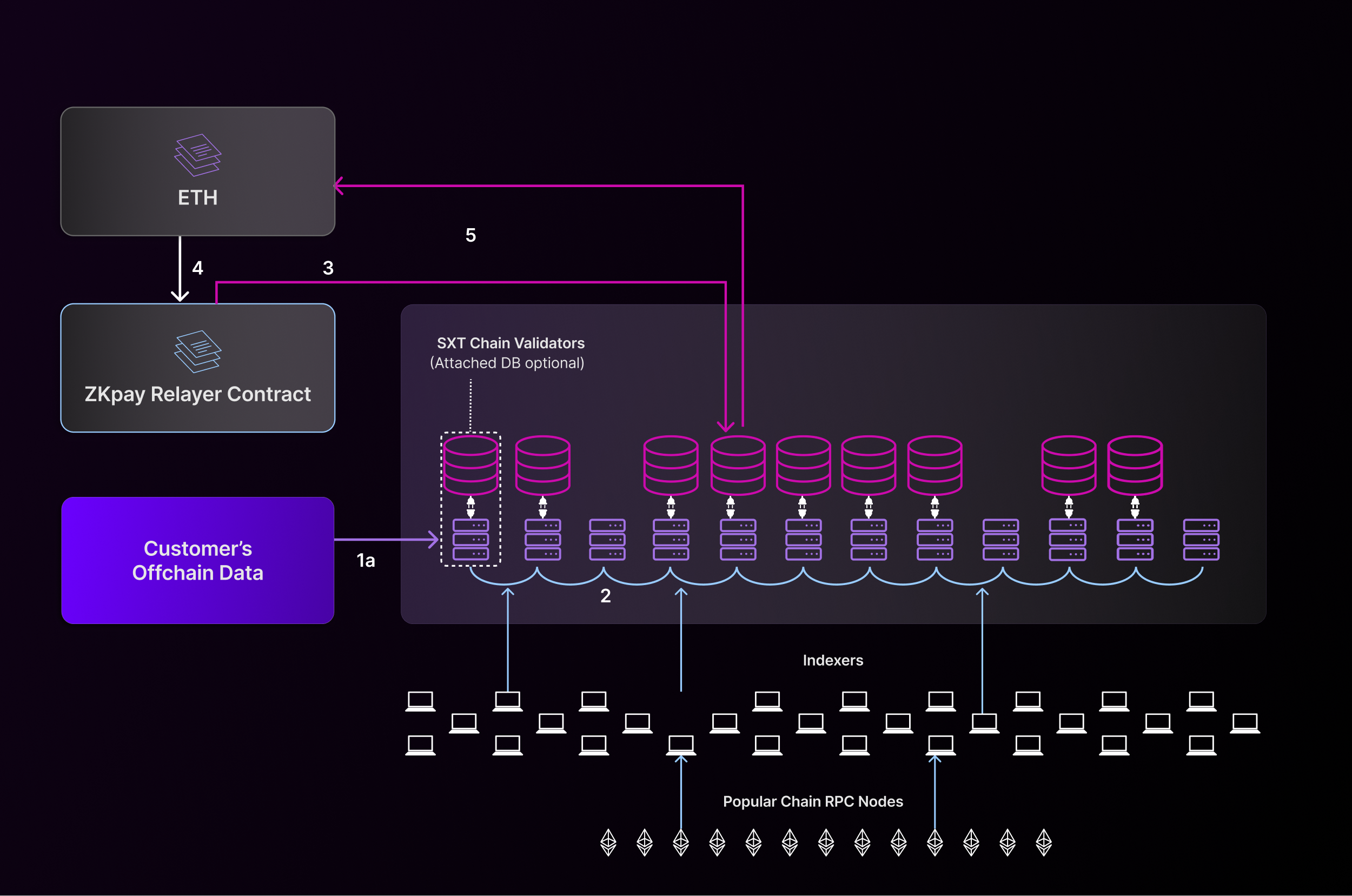ZK Coprocessor
ZK Coprocessors: The Scalable Path Forward for BFT Blockchains
Zero-Knowledge (ZK) coprocessors are emerging as the foundational architecture for scaling Byzantine Fault Tolerant (BFT) blockchains. Instead of redundantly executing the same smart contract logic across dozens or hundreds of validator nodes, ZK coprocessors move heavy computation off-chain and bring only verifiable proofs of computation back onchain. A ZK coprocessor is an external server or cluster that processes complex logic—such as smart contract execution or data queries—offchain, and generates a succinct zero-knowledge proof attesting to the correctness of the resulting state transitions or outputs. These proofs are then verified on the main chain by validators, allowing BFT consensus to finalize results without duplicating computational effort.
In this model, a single prover server—secured by access to Merkle root commitments from the chain—can compute changes in contract state or balance deltas and generate a ZK proof. This proof is submitted back to the base chain, where it's verified by the validator set using BFT consensus. This dramatically reduces the computational burden on validators: they no longer re-execute contract logic but only verify a lightweight cryptographic proof. This paradigm not only scales Ethereum, but is equally applicable to high-performance chains like Solana and Sui.
ZK coprocessors effectively reframe what Layer 2 solutions are. zkEVM rollups like zkSync Era function as general-purpose ZK coprocessors that execute EVM logic off-chain and submit proven state transitions to Ethereum. Specialized ZK coprocessors, like those in the Space and Time ecosystem, focus on verifiably executing SQL queries over historical blockchain data. Both types submit zero-knowledge proofs to the main chain for validation and settlement. As blockchain networks evolve, the base layer becomes a global settlement and data availability layer, and ZK coprocessors—whether general-purpose or domain-specific—become the execution layer that handles real computation.
By adopting this architecture, blockchains scale not by increasing throughput on the main chain, but by minimizing redundant execution and treating proof verification as the only necessary on-chain task. This is the clearest path to scaling secure, verifiable, and computation-heavy dApps without sacrificing decentralization or trustlessness.
Space and Time: ZK Coprocessor for SQL Queries
Space and Time (SXT Chain) is a domain-specific ZK coprocessor and the first trustless SQL database for the EVM. It enables smart contracts to run fully verifiable SQL queries against both on-chain indexed data (e.g., decoded EVM events) and user-generated off-chain tables. A single SXT node executes the SQL query, builds a zero-knowledge proof of correct execution over cryptographically committed data, and delivers both the result and the proof back to a client contract. That contract can then verify the result trustlessly and trigger state changes accordingly, without incurring gas costs for heavy computation.
By combining cryptographic table commitments, sub-second GPU provers, and SQL support, Space and Time extends the ZK coprocessor pattern to structured data analytics. This makes it uniquely capable of supporting data-rich Web3 apps such as reward automation, token gating, or dynamic on-chain pricing—all while keeping computation gasless and verifiable. In short, Space and Time transforms the EVM into a data-aware environment with fully trustless access to indexed blockchain and off-chain data.
For more information, check out our ZK proof repo!

Updated 3 months ago